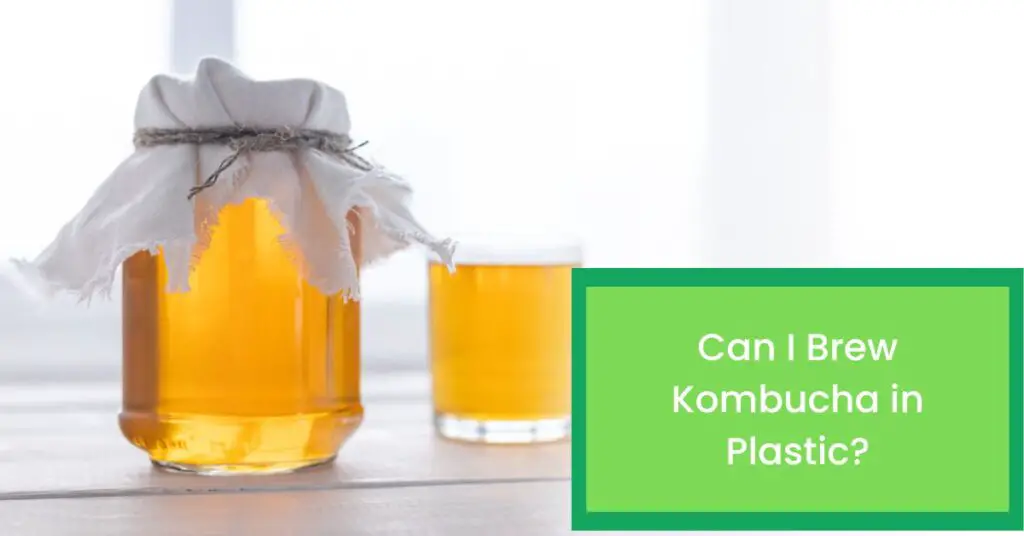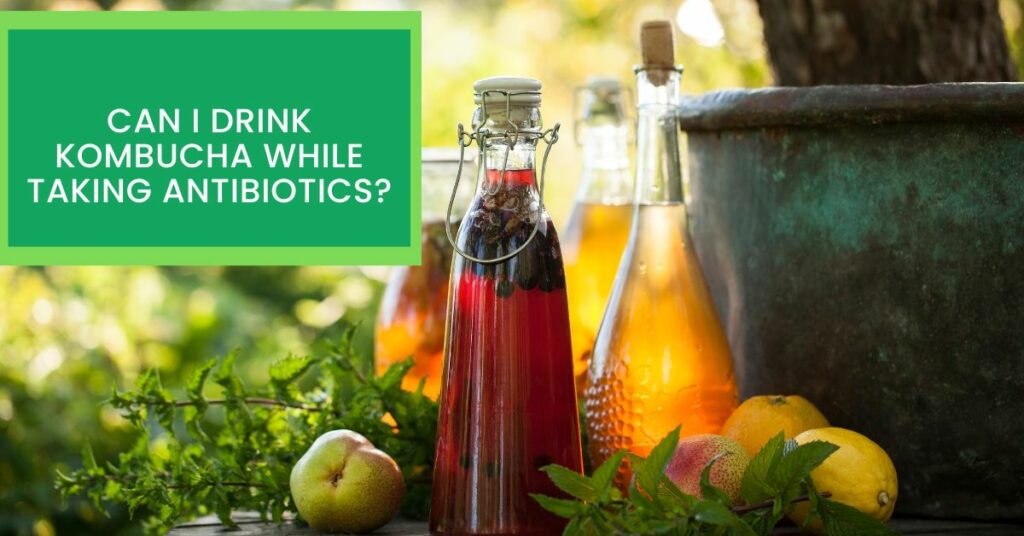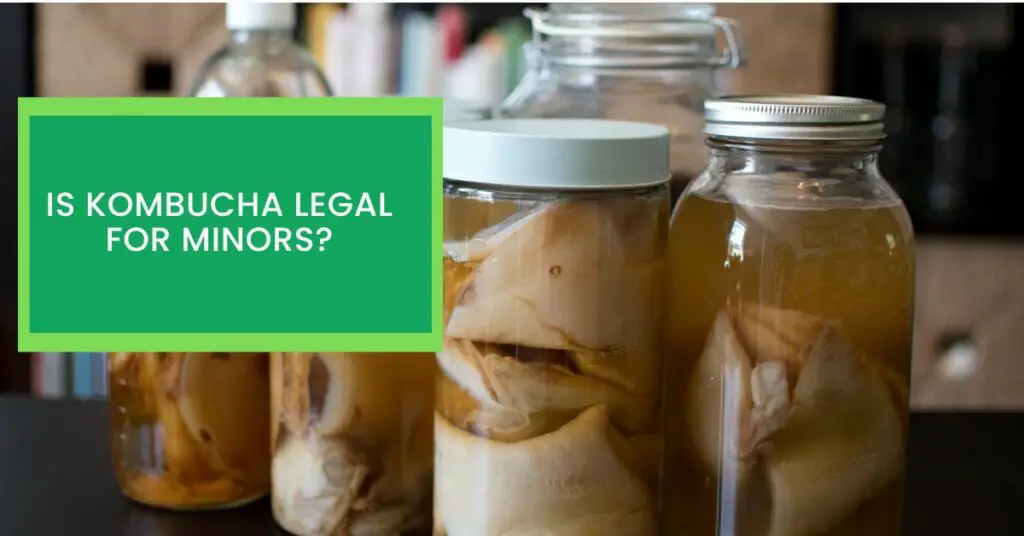Kombucha is a fermented tea that has become increasingly popular in recent years.
Traditionally, kombucha is brewed in a ceramic or glass container. However, there are a number of different types of containers that can be used to brew kombucha.
You can brew kombucha in High-Quality Plastic. In fact, plastic is a good alternative material for kombucha brewing because it doesn’t corrode, it’s lightweight, and it’s easy to clean.
In this article, we’ll discuss some things you need to know about brewing kombucha in a Plastic container.
Does Kombucha React With Plastic?
Kombucha is a fermented drink made from tea and sugar. It’s been around for centuries and has become increasingly popular in recent years.
One of the most common questions we get about kombucha is whether or not it will react with plastic. The short answer is that it’s unlikely.
Kombucha is acidic but not nearly as acidic as vinegar or lemon juice. It’s also not as volatile as those liquids, so it’s less likely to react with plastic.
However, if you’re concerned about plastic leaching into your kombucha, you can always ferment it in a glass vessel. Glass is non-reactive and won’t leach anything into your kombucha.
The Advantages of Brewing Kombucha in Plastic
While glass is the safest option for kombucha brewing, plastic has a few advantages.
First, plastic is much lighter than glass. This is important if you plan on moving your kombucha around or taking it with you on the go.
Second, plastic is less likely to break than glass. This is especially important if you have kids or pets in the house who could knock over your kombucha fermenting vessel.
Third, plastic is easier to clean than glass. Glass can be difficult to clean and is often stained by kombucha’s dark colour. Plastic is much easier to clean and won’t retain any stains.
Fourth, plastic doesn’t react with kombucha like glass can. Glass is porous and can absorb flavours from kombucha. Plastic is non-porous and won’t absorb any flavours.
Finally, plastic doesn’t corrode as metal can. If you’re using a metal vessel to ferment your kombucha, the acidity can corrode the metal over time. Plastic is much more resistant to corrosion and won’t be affected by kombucha’s acidity.
The Disadvantages of Brewing Kombucha in Plastic
While there are some advantages to brewing kombucha in plastic, there are also some disadvantages.
First, plastic is not as aesthetically pleasing as glass. If you’re looking for a beautiful vessel to display your kombucha, glass is the way to go.
Second, plastic can leach chemicals into your kombucha. This is especially true of cheaper, lower-quality plastics. If you’re concerned about chemicals leaching into your kombucha, glass is a safer option.
Third, plastic is not as durable as glass. Glass can last for years with proper care, while plastic may start to degrade after just a few months.
Fourth, plastic is not as easy to clean as glass. Glass can be cleaned with vinegar and water, while plastic may require special cleaners.
Finally, plastic doesn’t insulate as well as glass. If you’re fermenting your kombucha in a warm environment, the glass will help to keep your kombucha at the correct temperature. Plastic is not as effective at insulating and may cause your kombucha to get too warm.
Choose The Right Plastic Container For Brewing Kombucha
When it comes to brewing kombucha, choosing the right container is important. This is because the container will affect the taste of your kombucha.
If you wish to brew kombucha in a plastic container, make sure you get a #2 grade, #4 grade, or #5-grade type container.
Here are some things to consider when choosing a plastic container for brewing kombucha:
1. The type of plastic: There are different types of plastic, and each type has its own properties. Make sure to choose a plastic that is food-grade and approved for brewing kombucha.
2. The size of the container: The size of the container will determine how much kombucha you can brew. Choose a size that is appropriate for your needs.
3. The shape of the container: The shape of the container will affect the taste of your kombucha. Choose a shape that you think will produce the best-tasting kombucha.
4. The material of the container: The material of the container will also affect the taste of your kombucha. Choose a material that is inert and will not react with the kombucha.
Keep these considerations in mind when choosing a plastic container for brewing kombucha. By doing so, you can be sure that you will choose the right container for your needs.
What is The Best Container to Brew a Kombucha?
When it comes to brewing kombucha, there are a few things you need to take into account. One of the most important factors is what kind of container you use.
There are a few things to consider when choosing a container for brewing kombucha. The most important factor is the size of the container.
You’ll need to make sure that the container you choose is large enough to accommodate the amount of kombucha you want to brew.
Another important factor is the material of the container. Glass is the best material to use for brewing kombucha because it doesn’t absorb flavours or odours.
Plastic, on the other hand, can absorb these flavours and odours, which can affect the taste of your kombucha.
Overall, the best containers for brewing kombucha are those that are made of glass and are large enough to accommodate the amount of kombucha you want to brew.
By choosing a container made of these materials, you can be sure that your kombucha will taste great every time.
Frequently Asked Questions Related to Brewing Kombucha And Brewing Containers
1. Can I ferment in a plastic container?
You can ferment in a plastic container as long as you are using high-quality food-grade plastic.
However, we do not recommend using regular kitchen plastic Tupperware because it is not meant for food storage and may contain harmful chemicals that could leach into your food.
Make sure to use high-quality food-grade plastic containers specifically made for fermenting or for storing food. These containers are typically made from BPA-free materials and will be safe for contact with your fermenting foods.
2. Can you bottle kombucha in plastic bottles?
Kombucha can be bottled in plastic bottles, but it is advised that the bottles be used only once. The kombucha will not harm you if ingested, but it is not recommended to drink from the same bottle more than once.
This is because while the kombucha is fermenting, a very small amount of alcohol is produced. If stored in a plastic bottle for an extended period of time, that alcohol could leach out of the plastic and into the drink.
While this amount would likely not cause any harm, it is preferable to avoid any unnecessary risks. Glass bottles are a better option for storing kombucha.
3. What plastic is safe for fermenting?
#2-grade plastic is safe for fermenting. #4-grade and #5-grade plastic can also be used, but they are not as safe as #2-grade plastic.
Polycarbonate should not be used for fermenting because it contains BPA, which can leach into the food.





